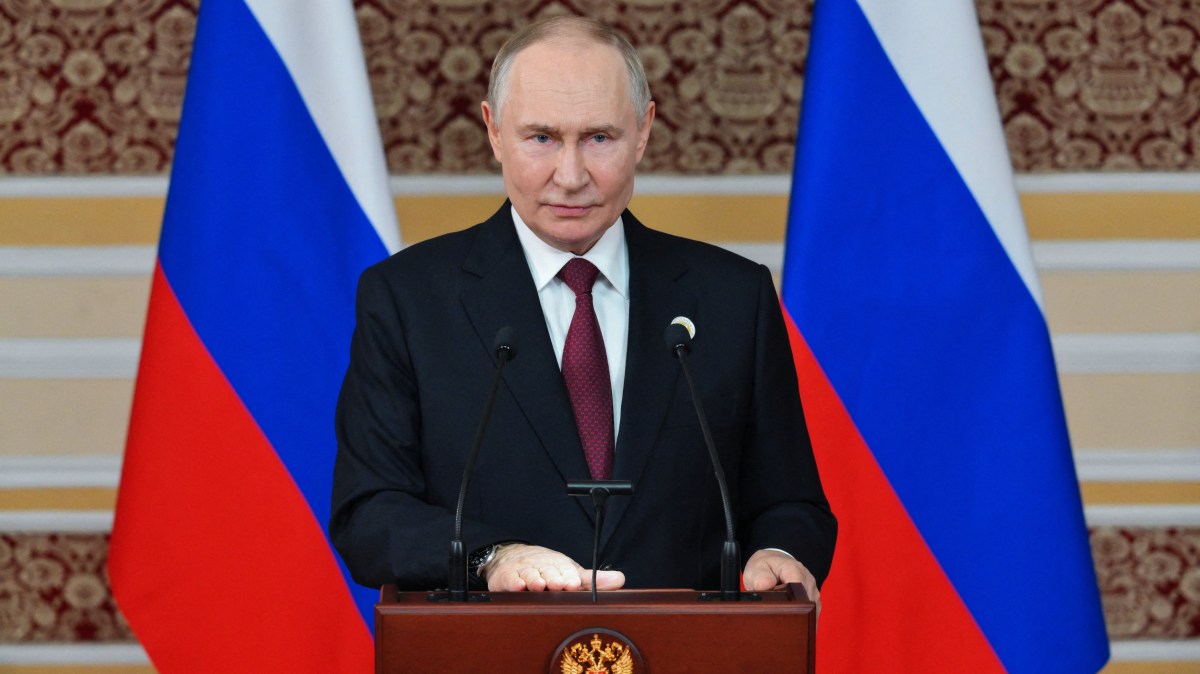Ministers are preparing to use billions of pounds worth of Russian assets frozen in Britain to support Ukraine in its fight against Russia as part of an international push to increase pressure on President Putin.
In a move co-ordinated with France, Germany and the United States, Sir Keir Starmer said the UK was willing to unlock up to £25 billion of Russian money held in the UK for the war effort.
The decision, after months of talks among the G7 and other western allies, may release as much as £250 billion to Ukraine in tranches to fund weapons purchases and prop up its war economy.
In a joint statement with President Macron of France and Friedrich Merz, the German chancellor, Starmer said that the three leaders had agreed to “increase pressure” on Putin to counter his “stalling tactics and abhorrent attacks in response to peace talks”.
They said: “To that end, we are ready to progress towards using, in a co-ordinated way, the value of the immobilised Russian sovereign assets to support Ukraine’s armed forces and thus bring Russia to the negotiation table. We aim to do this in close co-operation with the United States of America.”
Starmer is also understood to have discussed the plan with President Zelensky of Ukraine. Downing Street said that the UK, France and Germany were “united in wanting to drive progress towards using the full value of the immobilised Russian sovereign assets to end the war”.

Renewed attacks across Ukraine have strained its economy and pushed Western leaders to accelerate plans for long-term financial support
DAN BASHAKOV/AP
Rachel Reeves, the chancellor, is due to discuss the proposals with other western finance ministers at a meeting of the International Monetary Fund in Washington next week.
The UK is believed to hold more than £25 billion of Russian financial assets that were seized after the invasion of Ukraine, including money held in the UK by the Russian central bank, national wealth fund and ministry of finance.
Belgium holds €190 billion (£165 billion) worth of assets in Euroclear, the Brussels-based central securities depository, and France holds €19 billion (£16 billion).
• How Europe can hit Russia where it hurts — and why it probably won’t
Until now, the UK and other countries have been prepared to use only the interest on Russian assets to fund the Ukrainian war effort. Belgium is said to have been reluctant to release the money for fear that having done so could be deemed illegal in the future — having to repay such a sum would effectively bankrupt the country.
However, under a plan being worked up by EU and G7 leaders, countries would issue up to €172 billion (£149 billion) in loans to Ukraine by swapping Russian cash linked to the immobilised assets for zero-interest bonds. Ukraine would have to pay back the loan only if Moscow paid war reparations, which is considered unlikely.
This mechanism would allow countries to spread the risk of confiscating Russian assets while freeing up huge sums. The hope is that this will increase the pressure on Putin to come back to the negotiating table and provide a long-term financing mechanism for Ukraine to fill the gap left by American moves to reduce its financial support.
• The Times View: Action, not rhetoric, is needed to check Putin’s aggression
The Trump administration has called on G7 allies to seize “or otherwise use” Russia’s underlying assets “to fund Ukraine’s defence”, according to a US position paper seen by The Financial Times.
At a meeting of the G7 this month, leaders agreed to “address Ukraine’s financing needs” to “ensure that Russia cannot wait it out”. In a statement after the meeting, the leaders said these measures included using “the full value” of Russian state assets “immobilised in our jurisdictions to end the war and ensure a just and lasting peace in Ukraine”.
Reeves has said in the past that the British government would “only consider options in line with international law and that are economically and financially responsible”.
